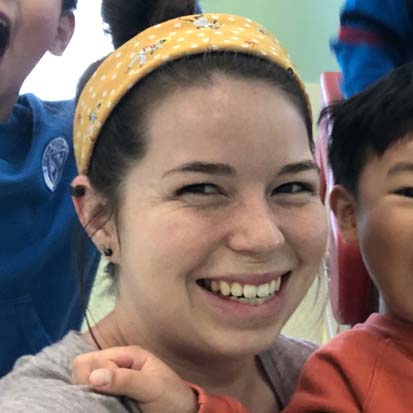Teaching English in Jeonju, South Korea: Alumni Q&A with Samantha Broking
Written By: Samantha Broking | Updated: June 29, 2023
Written By: Samantha Broking
Updated: June 29, 2023

What is your citizenship?
United States
What city and state are you from?
Rochester, New York, USA
How old are you?
24
What is your education level and background?
Bachelor's Degree
Have you traveled abroad in the past, if so, where?
Yes, I studied abroad in Florence, Italy and have traveled to roughly 20 countries. Top favorites include: Italy, Kenya, Malaysia, Thailand and Scotland.
What sparked your interest in going to teach English abroad?
I finished my degree studying abroad, so when I came home with a degree in my hands I knew I wanted to get back out and travel. I researched ways to live abroad and teaching English quickly stood out to me.
What were some of your concerns before teaching abroad?
Honestly I didn't have many. I did tons of research through ITA pages and other credible sources so I felt very prepared and all questions I had I found answers to.
What did your friends and family think about you moving and teaching abroad?
I received so much love and support. Of course my family had some concerns, as is natural for any family, however the support more than outweighed any concerns.
Why did you decide to get TEFL certified and choose International TEFL Academy?
With only a basic search for teaching English abroad, I felt that it was quite clear getting TEFL certified would greatly increase country options and better my chances of getting hired. I did about a month of research to find the best, most credible and economically friendly option and ITA stood out most. ITA makes it easy to reach out with questions and I did not feel any pressure to sign up for a course. The advisor gave me answers and let me take my time deciding what I wanted to do.
Which TEFL certification course did you take?
Online TEFL Course
How did you like the course?
The main takeaway is that while I may not apply many aspects of the course directly into my teaching, I gained an awareness of different learning styles and the ability to incorporate various teaching methodologies to benefit my classrooms.
I did not feel overwhelmed by the amount of work involved. Deadlines were clear and the instructor made all information easy to understand. The practicum element is crucial. This is what makes ITA truly stand out from other institutions. This makes you dive into teaching to see if you want to really do this. Additionally, having this practice made me feel more comfortable and at ease my first day of teaching abroad.
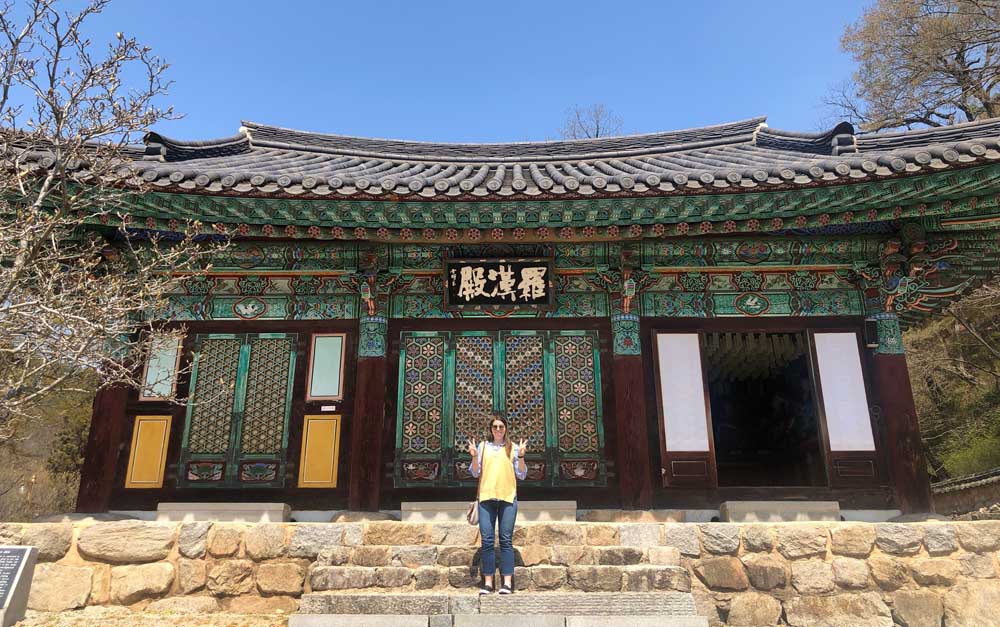
How has your TEFL training helped you in your current teaching position?
I am able to quickly adapt to all the learning styles in one classroom and make the learning environment beneficial to all my students.
Which city and country did you decide to teach English in and why?
I moved to teach English in Jeonju, South Korea in 2018 and stayed for 13 months. I planned on staying a year and left the day my visa expired. I left because I wanted to teach in Europe (currently in Prague, Czech Republic), however, looking back, I miss Korea a lot.
Korea stood out to me because of the benefits: visa assistance, good pay, housing, ability to save money. I decided on Jeonju because I wanted a smaller city to feel more connected with the Korean culture.
What school, company, or program are you working for?
I worked at POLY Jeonju, which is a hagwon. There are many POLY's scattered throughout the country, so working conditions and opinions vary. However, POLY is well established and very organized, making its credibility as a private school noteworthy.
During which months does your school typically hire?
Varies. Contracts are for one year, but many teachers extend. Good thing is that there are many POLY schools, so there are bound to be options during the time you are looking for.
Did you secure this position in advance of arriving?
Yes.
How did you interview for this position?
Skype.
What kind of Visa did you enter on?
E2 visa.
Please explain the visa process that you went through.
I have completed the visa process for multiple countries and I will say... while the visa process for Korea can be stressful, it is extremely organized and clear compared to other countries. Take advantage of this. Obtaining your E2 visa (typical teacher visa) has many documents required. I cannot stress enough to start the process as soon as you know you in your heart you are going to Korea. Research the list of documents required. I know ITA has a lot of information about this. Do your research. Maybe start your diploma process or get your finger prints done. Just know what you need to do. Then contact a recruiter, and get the ball rolling.
Once you contact a recruiter things will go quickly. Seriously, once you contact a recruiter the stress levels will increase. Within one week of talking with my recruiter I secured a job. I then had two months to complete the visa process, which sounds like a lot of time, but it's not! I ran around and drove countless hours to my university, to county and state offices, and the embassy. I didn't have enough time to do everything by mail, so I drove quite a bit. One last comment, the process can and will be expensive. Probably a few hundred dollars. So be prepared.
Overall looking back, I was stressed at the time but now I am thankful for the clear and organized process of obtaining the Korean visa. When your plane lands in Korea, your visa is already in your passport and you're ready to go!
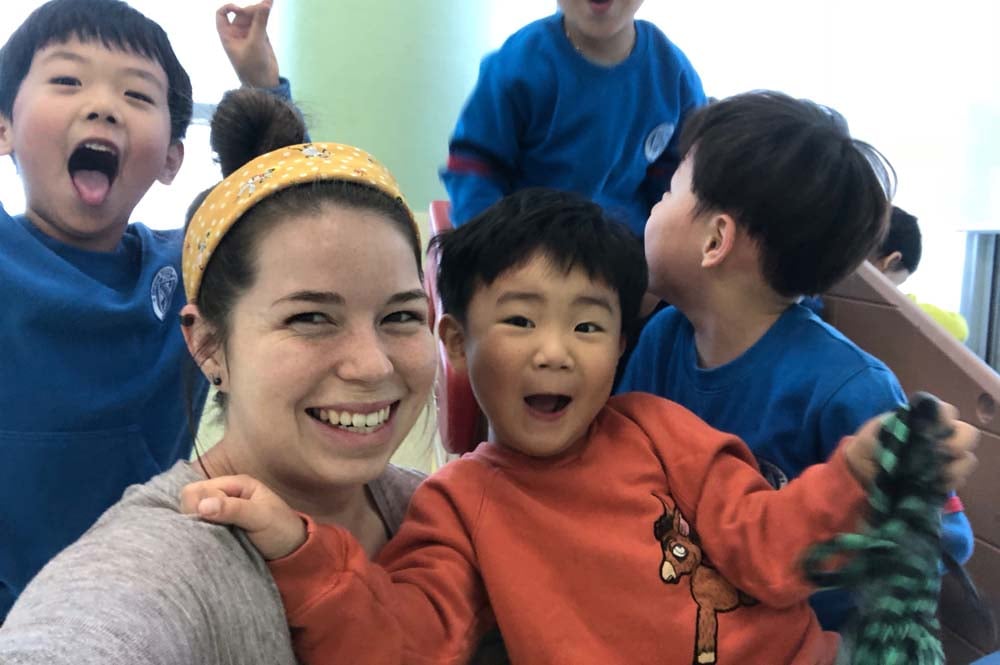
What are the qualifications that your school requires for teachers? Please check all that apply
TEFL certification, Bachelor's Degree, and a Native English Speaker.
What is the best way to apply?
Recruiter - I used Reach to Teach. Highly recommend. I got an immediate response and my recruiter was AMAZING. Everything was efficient, clear, and organized.
Tell us about your English teaching job!
Looking back and comparing my time in Korea to other countries, I truly miss Korea. The school system is quite intense, however I gained such a respect for it. I miss how much respect my students gave me. As a whole, Korean children are extremely respectful and I felt that I was actually making a positive impact on their education and lives.
I worked approximately 50 hours a week (M-F) and had a high salary. In the mornings I taught kindergarten and afternoons mainly elementary level with some middle school. Of course I was not teaching the entire time. I had plenty of prep time and some breaks. One thing I loved about POLY is that all materials are supplied to you and the classes are clearly laid out. I never felt stressed during prep time, as everything was clear and once I got into a rhythm of teaching, it became easy and I gained confidence quickly.
Vacation time was quite low, however I knew this coming in. It was clearly written in the school's calendar. About a week for summer vacation, time off for Chuseok, Christmas/New Year's, Lunar New Year, and various Korean holidays scattered throughout the year. We did not get more than a week off at a time. After a year, I was quite tired. But looking back, I loved it! I do wish I had a little more time off because I didn't really get to travel outside of Korea like I wanted to. Also, living a few hours from an international airport did make it harder to get out of the country more often.
I was easily able to save $1,000 a month. I went out with friends, bought all the cute stationary my heart desired and traveled around the country. Because my housing was paid for, my only monthly expenses were phone and utilities. I "lived it up" and did all the things I wanted to without stressing about money. I had student loans in America that factored in too.
How did you find somewhere to live and what is it like? Do you have roommates?
My school provided housing. Large studio apartment with all essentials. It was in a cute, safe neighborhood and about a 5 minute walk from work. I lived alone. My coworkers lived in the same neighborhood.
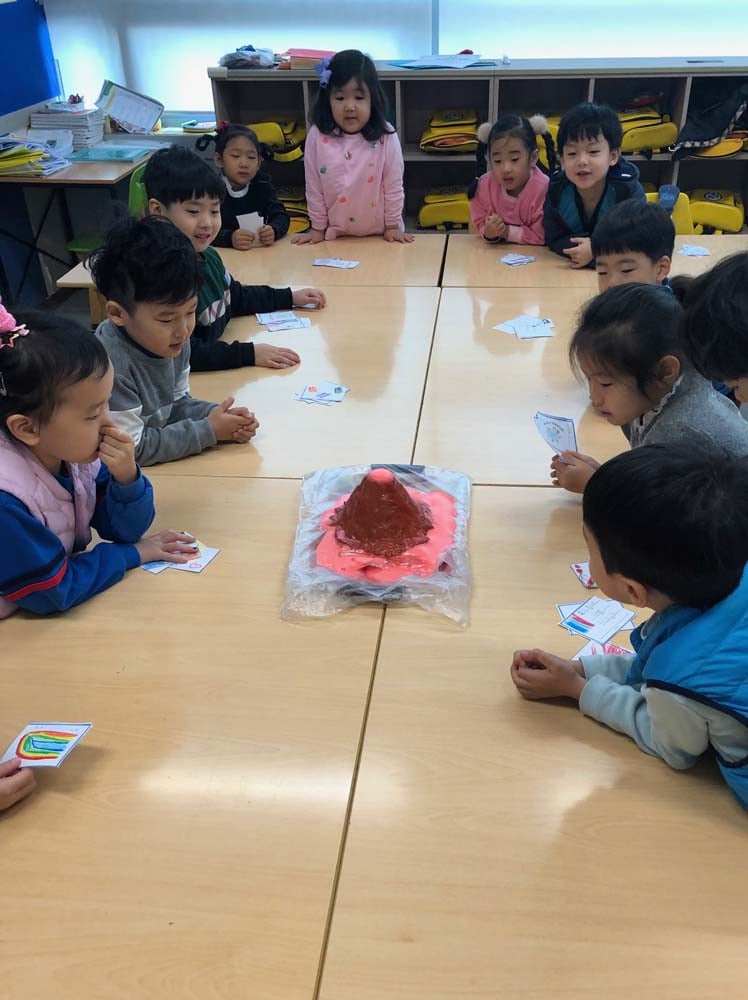 Please explain the cultural aspects, public transportation, nightlife, social activities, food, expat community, dating scene, travel opportunities, etc...
Please explain the cultural aspects, public transportation, nightlife, social activities, food, expat community, dating scene, travel opportunities, etc...
I lived in Jeonju, which is a couple hours south of Seoul. I may be biased, but I believe it is the best city in the entire country. It's small and is the FOOD capital of the country. Seriously, check it out. The freshest and largest variety of Korean favorites (especially bibimbap). It is also home to a very popular Hanok village that attracts tourists during the weekends.
Living in Jeonju gave me a better opportunity to learn about the Korean culture and also the language. English is only known by few in the city, so I had to learn some Korean to get by and I also learned more about the cultural norms. Jeonju is beautiful and the perfect balance of city and country. Seoul was a nice place to visit, but always overwhelming. There's so much to do in Seoul and I feel that it's easier to 'live a western like life' in Seoul. Jeonju lets you embrace everything Korean. So when looking at places to live in Korea, put Jeonju, or other smaller cities on your list. You will always be able to visit Seoul or Busan on the weekends. P.S. Jeonju is perfectly located from many large and medium sized cities, making weekend trips easy and fun!
Jeonju has a small, but perfectly sized expat community. While you may not hangout with everyone, you become aware of all the foreigners in the city. You get to know all the private schools and who works where. Many foreigners in Jeonju stay for a long period of time. Also, I think living in a smaller city gave me the ability to meet more locals.
Take advantage of the stellar bus system in Korea. You can travel pretty much anywhere in the entire country for very cheap. The busses are comfortable and clearly labeled. ALSO do not miss out on the highway stops. The food at the stalls is phenomenal. Be sure to bring tissue for toilet paper and make sure to check the license plate of your bus for ease of getting back on.
Go to jimjilbangs. What are those? I like to call them the Korean nakey spas. It's an overnight sauna experience that you'll fall in love with. Very cheap to enter. The wet part is separated between men and women. You do go in naked, and because you are a foreigner, you get looked at a bit more, but it's just fabulous. The dry sauna is co-ed and you are given shorts and a shirt to wear. Food and drinks are available too.
Lastly, learn some Hangul. At least how to pronounce the symbols. While my Korean language skills are extremely low, being able to pronounce the symbols gave me a great advantage. Especially reading menus. In Seoul, you can get away more with not knowing Hangul, but it is more difficult living in a smaller city. If you practice a little bit each day, you'll be a pronunciation expert within a month!
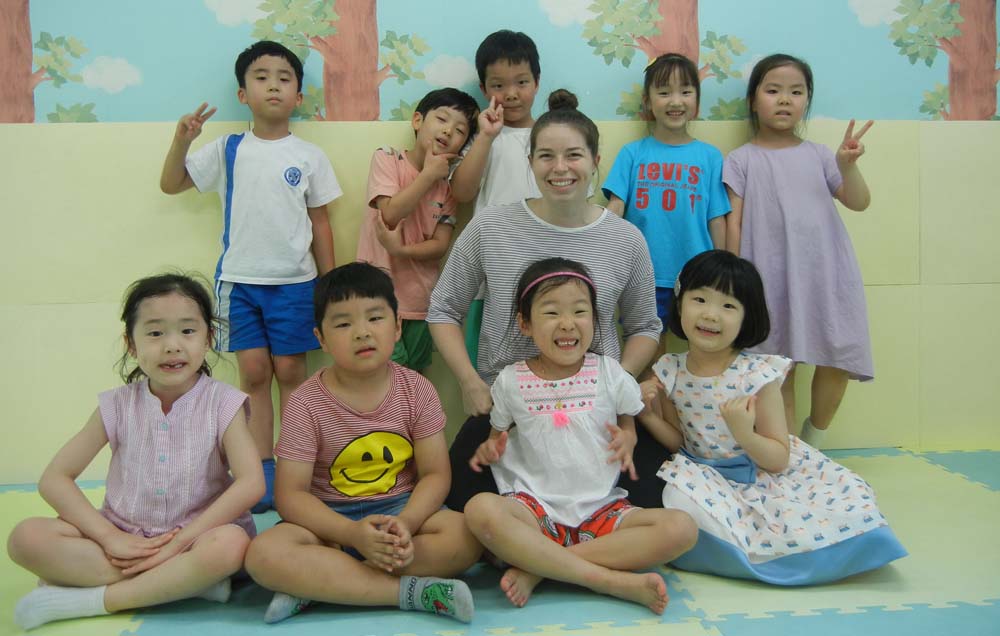
What are your monthly expenses?
- Rent: paid by school
- Utilities: $10-$40, depending on time of year
- Phone: approx $22 (10 gigs, company: Olleh)
- Transportation: $30-$50, only taxis, no metro, very limited busses
- Food: $200-$250 groceries and eating out, also lots of coffee
- Travel: $30-$100 depending on where I went that month
- Social activities: $50-$200
I probably spent $1000-$1500 in total for the year on all of the cute stationary, pouches, facemasks, etc. that Korea has to offer.
How would you describe your standard of living?
For the most part I went out with friends and did social activities without ever stressing about money. I currently live in Prague and am much more conscious with my spending on a teacher's salary. Take advantage of the good salaries in Korea!
In your opinion, how much does someone need to earn in order to live comfortably?
A 2 million won salary would be enough to live comfortably (able to do all things you want) while still saving a good chunk of money. Although, I did live in a smaller city where things were a bit cheaper.
What advice would you give to someone looking to teach English abroad?
Highly, highly recommend teaching in Korea & teaching English in Jeonju. DO YOUR RESEARCH, READ YOUR CONTRACT AND ASK QUESTIONS.
First, research the visa process. Make sure you are eligible to teach in Korea and make sure you will be able to collect ALL the documents. Make a checklist and fill it with all necessary details.
Second, do thorough research to find out if the public or private route is better for you. You will read countless testimonies and see horror stories of hagwons, but trust your gut. I went with a hagwon and loved it.
Third, research the schools BEFORE the interview. If there's no website, or no information within the past few years, might not be suitable and BRING THAT UP in the interview. Collect as much information as you can. That way you can form questions to ask during the interview. If past teachers have negative things to say online, find an appropriate way to talk about that in the interview. Also, ask for contact info of a current teacher.
Fourth, once you receive your contract. READ IT. Read all of it. Know exactly what you're getting into. Look for hours, time off, sick policy, everything. Anything that you feel is pertinent but missing, ask before you sign. I asked for more details about time off and I was sent actual dates. So there were no surprises when I signed.
Posted In: Teach English in South Korea, Teach English in Asia, Jeonju
Samantha Broking
After completing her degree while studying abroad in Florence, Italy, Samantha Broking knew she wanted to get back out and travel upon her return home. She researched ways to live abroad and teaching English quickly stood out to her. In 2018, she moved to Jeonju, South Korea where she taught English to children at a hagwon for 13 months. She now lives in Prague, Czech Republic and continues teaching English there.
Want to Learn More About Teaching English Abroad & Online?
Request a free brochure or call 773-634-9900 to speak with an expert advisor about all aspects of TEFL certification and teaching English abroad or online, including the hiring process, salaries, visas, TEFL class options, job placement assistance and more.







